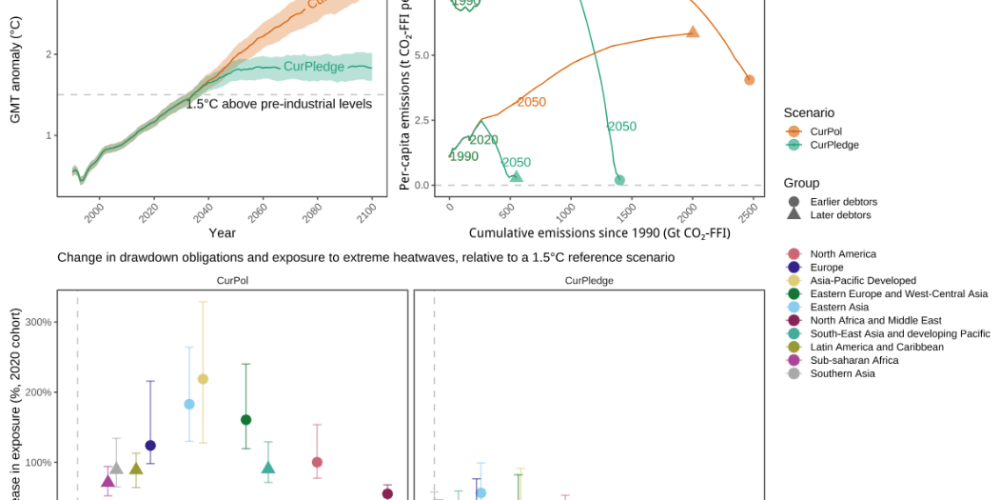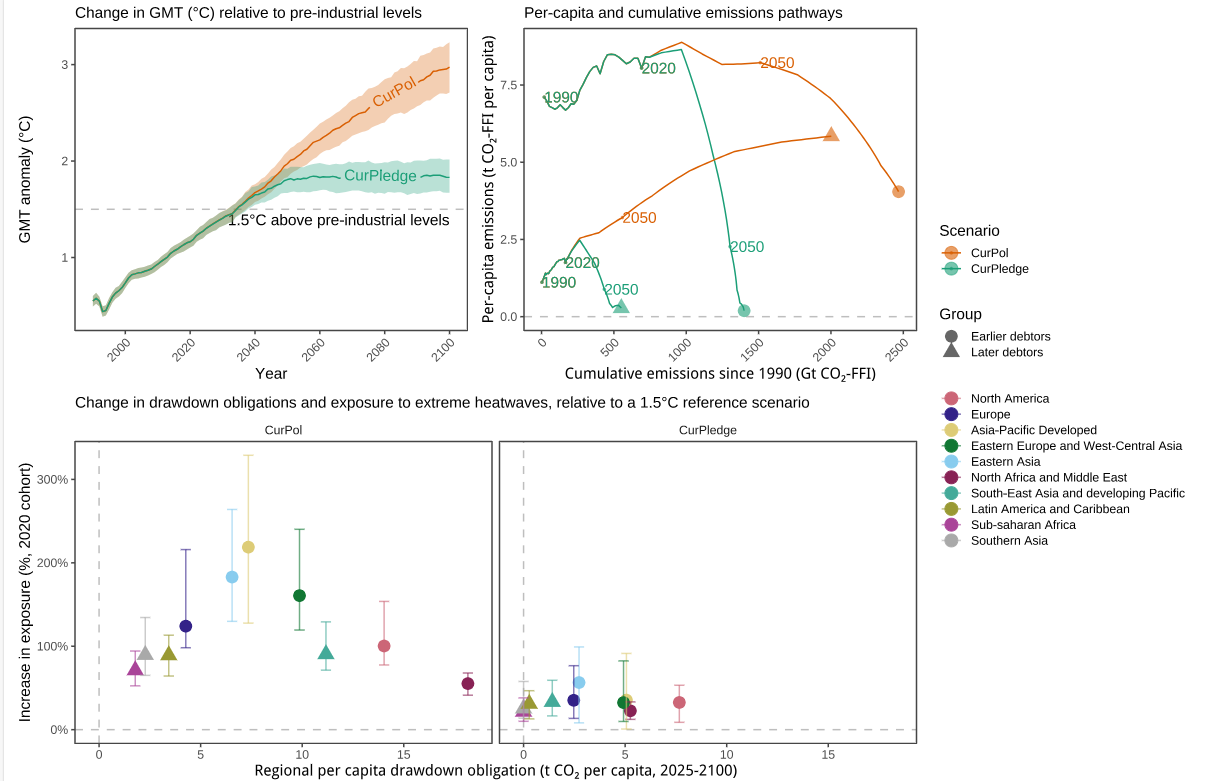
What is a fair way forward after the 1.5°C warming limit of the Paris Agreement has been breached? In a new study, an international team including VUB researchers explores the concept of ‘net-zero carbon debt’ — a measure for assessing who bears greater responsibility for minimizing the climate overshoot.
Research shows that we are on course to exceed the Paris Agreement’s 1.5°C limit within a decade, exacerbating already heated international climate negotiations. Some countries have achieved their wealth by polluting for decades and others argue for the same space to escape poverty and develop. Navigating this new context demands a transparent system that accounts for both historical and future emissions, ensuring each region shoulders its fair share of responsibility for climate action.
To inform efforts toward minimizing the magnitude and duration of the overshoot, in a new study, the researchers explored the concept of a net-zero carbon debt. Using this measure, scientists can track which regions bear greater responsibility for the climate overshoot as it progresses, while explicitly accounting for past inaction. If a region is expected to accumulate net-zero carbon debt, it will need to compensate — either by supporting emissions reductions elsewhere in the world or by removing additional carbon from the atmosphere.
“As we near the Paris Agreement’s 1.5°C limit, the question is not just about when we will exceed it, but also how we collectively deal with the consequences in the subsequent period,” says Setu Pelz, lead author of the study and a researcher at the IIASA Energy, Climate, and Environment Program. “To guide efforts that minimize overshoot and establish who should pay for harms caused during this period, we measure who is responsible and to what extent under a range of scenarios and approaches.”
Calculating a region’s net-zero carbon debt involves comparing historical and projected CO2 emissions in a region to its fair share of the remaining carbon budget for staying below 1.5°C. Any excess emissions by the time it reaches net-zero CO2 count as its carbon debt.
Applying this approach to ambitious mitigation scenarios assessed in the IPCC’s Sixth Assessment Report reveals distinct regional patterns. Some regions consistently accumulate debt due to past inaction, others accumulate debt depending on the timing of their net-zero CO2 targets this century, and some only if they delay net-zero CO2 beyond 2100. “The calculation works out since we find that a ton of CO2 removed from the atmosphere is roughly equivalent in cooling to the warming from a ton of CO2 emitted”, says Chris Smith, senior scientist at VUB and co-author of the study. “It is important to recognise that this only holds for pathways that don’t overshoot 1.5°C by a large amount, which is why pursuing efforts to limit warming to 1.5°C is so critical”, he adds.
To highlight the implications of carbon debt accumulation, authors of the study assessed carbon drawdown obligations and changes in lifetime exposure to extreme heatwaves under current global climate ambitions, building upon an earlier study. “Our results show that every ton of net-zero carbon debt will not only increase the burden of emission reduction (and removal) on younger generations, but also worsen the climate impacts they will have to endure due to their region’s excess emissions”, says Wim Thiery, professor climate science at VUB and co-author of the study.

The results highlight the importance of the Paris Agreement and of limiting global warming to 1.5°C to protect the younger generations from the increasing frequency and intensity of climate extremes such as heatwaves. “Reducing our emissions now and implementing deep mitigation is the only way to alleviate the burden on the future generations”, concludes Wim Thiery.
This study is the result of cooperation between the scientists from IIASA, Vrije Universiteit Brussel, Climate Analytics, Humboldt University of Berlin, Imperial College London and Potsdam Institute for Climate Impact Research.
Reference:
Pelz, S., Ganti, G., Lamboll, R., Grant, L., Smith, C., Pachauri, S., Rogelj, J., Riahi, K., Thiery, W., Gidden, M., (2025). Using net-zero carbon debt to track climate overshoot responsibility. PNAS. Vol. 122, No. 13. DOI: 10.1073/pnas.2409316122.